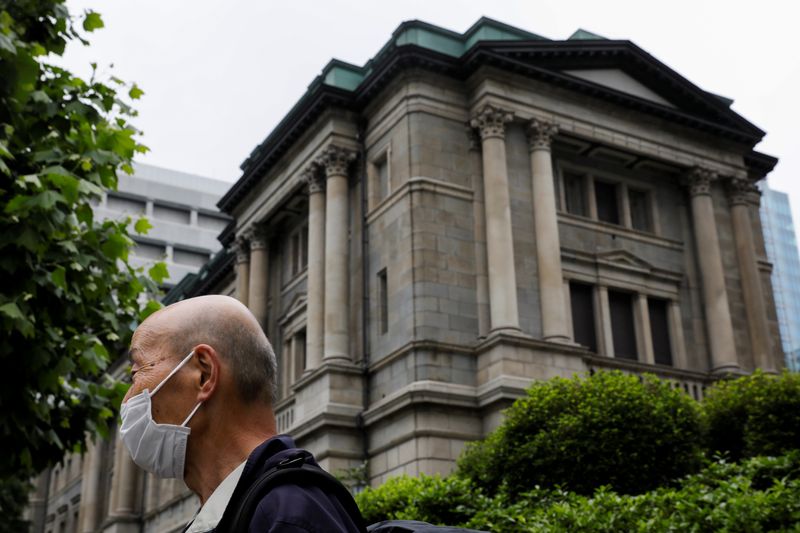TOKYO (Reuters) – The Bank of Japan’s monetary policy can play a bigger role in helping to alleviate the pain caused by structural changes to the economy brought about by COVID-19, its board member Seiji Adachi said on Thursday.
Government and central bank relief measures likely succeeded in addressing immediate economic shock from the coronavirus pandemic with Japan’s jobless rate, at 3%, much lower than around 7-8% for European and U.S. countries, Adachi said.
But jobs losses are increasing for temporary workers in service industries, while corporate bankruptcies may rise if the economy takes longer to emerge from the pandemic’s hit, he said.
“We’re not seeing major problems in corporate financing, though the outlook remains highly uncertain,” Adachi said.
“It’s necessary to maintain accomodative monetary policy in the COVID-19 era, while carefully monitoring economic developments,” he said in an online meeting with business leaders in Nagano, eastern Japan.
With the battle to contain the pandemic likely to take time, policymakers must consider what steps they could take to support a society seeking to “live with COVID-19,” Adachi said.
The U.S. Federal Reserve’s policy review, which put greater focus on boosting job growth, may be an example of how COVID-19 is changing the thinking behind monetary policy, he said.
Structural reforms and drastic changes to society needed to adapt to a “with-COVID-19” world can be painful, which is why a safety net to alleviate the pain will become important, he said.
“In the COVID-19 era, I believe it’s worth considering whether monetary policy might be able to act as a sort of safety net by providing accommodative financial conditions, rather than as a means of directly promoting such reforms,” Adachi said.
The BOJ eased policy twice this year to cushion the immediate pain from COVID-19, focusing on pumping money to cash-strapped firms. While corporate funding strains have eased, continued weakness in spending on services is stoking concern over the viability of some non-manufacturers hit hardest by the pandemic.
(Reporting by Leika Kihara; Editing by Chang-Ran Kim and Ana Nicolaci da Costa)























